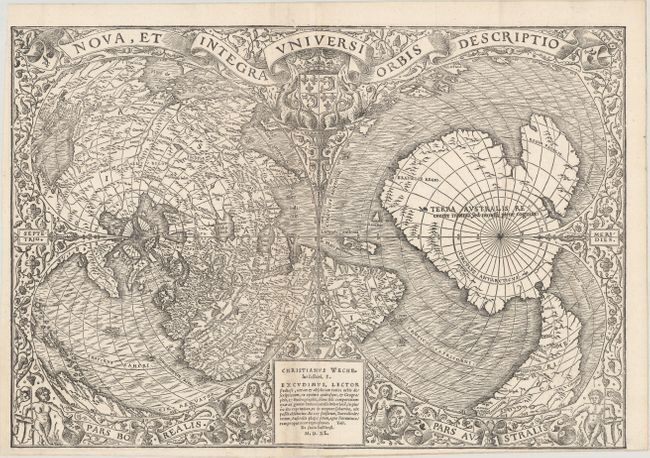Catalog Archive


Auction 168, Lot 6
Rare Double-Cordiform World Map with First Reference to Magellan's Voyage
"Nova, et Integra Universi Orbis Descriptio", Fine, Oronce

Subject: World
Period: 1540 (dated)
Publication: De Orbis Situ
Color: Black & White
Size:
16.5 x 11.4 inches
41.9 x 29 cm
Download High Resolution Image
(or just click on image to launch the Zoom viewer)
(or just click on image to launch the Zoom viewer)